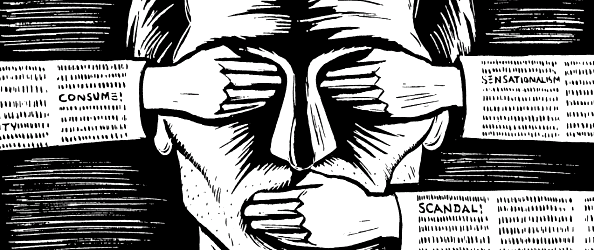There is no longer a need to argue that governments, the US government in particular, have been attempting to gain information about individuals through official requests to internet companies such as Google, Facebook, and Twitter. As the internet and social media continue to expand and the amount of information people willingly and unwillingly put only grows exponentially, the value of this data is unquestionable. Businesses want it. Other internet companies want it. Sharing has become normal in our society and that data is extremely valuable.
When governments increase their interest and focus on user data, that’s when it starts getting scary.
First and foremost, it must be understood that the US government is not in the business of protecting our rights anymore (if they ever really were). The sentiment in Washington is that we have to be protected from ourselves and the nefarious types around the world. This has been mandated for decades, expanded 11 years ago as a result of 9/11, and continues to be worked into the thinking of the people in a measure to prepare us for more docile acceptance of the rapid changes in the world. It is no longer a conspiracy theory or paranoia on steroids. It’s very well documented and a deep dive into the changing roles of government reveal that this trend is being fueled in many cases by good intentions and in response to real threats.
It is for this reason that the recent release of Google’s bi-annual transparency report is extremely alarming. It comes down to two primary concerns: privacy and censorship.
Privacy
The fourth amendment to the United States Constitution states:
“The right of the people to be secure in their persons, houses, papers, and effects, against unreasonable searches and seizures, shall not be violated, and no Warrants shall issue, but upon probable cause…”
One of the most protecting components of the laws that govern the United States left a large loophole that is now being used against the citizens. “Probable cause” in a digital age is easier to manufacture, manipulate, and “prove” than ever before. The Electronic Communications Privacy Act is ancient, established in 1986 well before the true expansion of the digital age, yet it remains as the standard by which law enforcement and government agencies can gain access to electronic communications. Coupled with inconsistent interpretations by the courts and an expansion in the portals through which our data is transmitted, ECPA is clearly in need of an overhaul. Unfortunately, the direction that governments around the world have been heading point to an increase in their jurisdiction over our personal information, private and public.
It’s a best practice to assume that anything put online, private or not, is not truly private. Hackers get data about us every day. Companies buy our data every day. Governments access our data every day.
Censorship
This is arguably the bigger problem as it’s proactively against the people. With privacy, one has the ability to unplug. However, the ability to transmit information, to have a voice, to use the internet for one of its primary purposes of content sharing and speaking the truth – these are rights that are being attacked on multiple fronts and that have the greatest ability to harm the population.
Truth is purchased. It was evident during the recent election when Prop 37, a measure to provide transparent labeling standards to let Californians know when a food contained genetically modified organisms (GMO), was shot down. Disinformation was rampant, bought and paid for by major corporations such as Monsanto that stood to lose if the people knew what they were eating. The ability for an informed population to react based upon voices outside of the worlds of big corporations, educational institutions, and government is a fundamental need that is (or at least should be) fulfilled by an uncensored internet.
The sharp spike in request for Google to remove content is alarming. It’s a trend that may have its roots in good intentions but that will evolve towards the type of “necessary censorship” that will change the internet from a connection and information tool to a tool used for broadcasting “approved” messages. This is not a subtle trend that will ease its way in, but rather a dramatic blitzkrieg that will catch everyone by surprise. Just as we were suddenly forced into body scanners and pat downs, we will be suddenly forced to be mindful of what we share on the internet. It’s impossible for most to imagine today. A couple of decades ago, it was impossible to imagine a world where our only air travel options were to have our bodies undergo mandatory peep shows or have our private parts physically examined by strangers.
The thing that the powers that be count on is the concept of “it’s not that bad”.
Big Brother is here, unrevealed
This isn’t paranoid ranting. It’s not fear mongering. It’s a reality that is already upon us and that’s being fed to us in bite sized portions to keep the choking levels down. Now more than ever in human history we must start choking it back up. We cannot sit back and allow our rights to be stolen. We must fight for our own rights and the rights of others. I cannot stress enough that the power to communicate the truth is our final ally in a spiraling world. If you’re out there wanting to know what’s going on in the world, what the government is doing, and what you can do to help, follow @DoNotCensorUs on Twitter. We are just getting started on getting it built up with the information you need.
There is a real risk that’s building. What you say today can be used against you tomorrow. If you are willing and able to be part of the outspoken minority in the very near future, it comes with risks but it’s a worthy cause. There is nothing wrong with being self-protective of yourself and your family, in which case it’s best to completely unplug and wait for the world of Big Brother to finally reveal itself.




GIPHY App Key not set. Please check settings